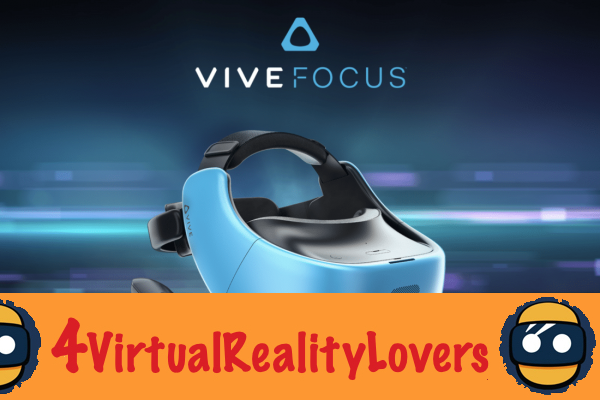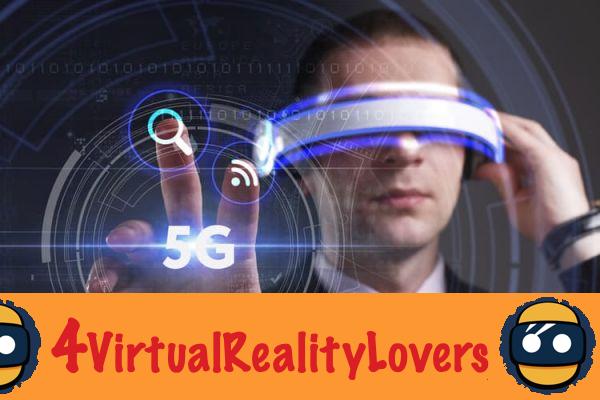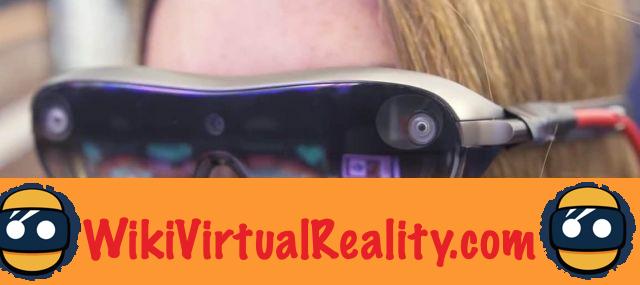
Summary
- HTC: from the first Android smartphone to the first VR headset
- HTC: 5G will make standalone VR headsets as powerful as PCs
- HTC: smartphones will remain at the heart of VR for a few more years
In the tech industry, HTC is not just anyone. Founded by Cher Wang in 1997, the Taiwanese company has distinguished itself by creating the very first Android smartphone in 2008. This great first allowed HTC to reign in the smartphone market for several years.
Ten years later, in 2018, HTC has clearly lost its luster as a manufacturer of smartphones. The rise of fierce rivals such as Samsung and the emergence of new competitors caused its downfall, despite the quality of its devices. The Asian remains however regarded as an innovator, always in search of new territories to explore and conquer.
HTC: from the first Android smartphone to the first VR headset

In recent years, HTC has once again marked the times by establishing itself as a pioneer of consumer virtual reality. In April 2016, a month after the Oculus Rift, the HTC Vive was released worldwide. In early 2018, HTC also launched a standalone headset called Vive Focus. At CES 2018 in Las Vegas, the manufacturer unveiled the Vive Pro, an improved version of the Vive with a 3K screen. For the future, the firm has many projects aimed at stimulating the development of the VR market.
As part of the MWC 2018 in Barcelona, it is precisely as a manufacturer of VR headsets that HTC was present. The company once again presented its Vive Pro headset, accompanied by several developers who came to present their revolutionary VR experiences. In addition, CEO Cher Wang held a discourse on the convergence of mobile technologies and virtual reality.
HTC: 5G will make standalone VR headsets as powerful as PCs

According to Wang, even though HTC is lagging behind in the mobile market, 5G and smartphones remain at the heart of its strategy. The 5G speed, capacity and low latency could in his eyes allow to extend the field of application of virtual reality by making it possible to create experiences impossible to develop at present.
Indeed, 5G could allow the use of computing power remotely thanks to cloud computing and edge computing. The data will be transmitted in real time, at a rate reaching several tens of gigabits. Computing power will no longer be delivered by smartphones or computers, but directly by remote servers via the Internet. Thus, 5G will make it possible to make autonomous VR headsets (standalone) like the Vive Focus as powerful and even more powerful than the Vive Pro.
HTC: smartphones will remain at the heart of VR for a few more years

5G will also help bring everyone the potential of artificial intelligence, and each user will enjoy personalized technology and better performance. "The devices of the future will know us better than we know ourselves".
Still according to Wang, the convergence of these technologies will be the key to allow to extend the use of virtual reality beyond the video game sector. At first, she believes that smartphones will be the first point of access to 5G for most users. Contrary to what IDC predicts, mobile VR headsets like the Samsung Gear VR could therefore have many years to come. In the long run, however, Wang predicts that the screen will no longer be integrated into the device. VR could be directly projected into our eyes ...





![[GOOD TIP] The DJI Mavic Air drone at only 970 euros 🔥](/images/posts/508c7088bbc439b2faabf0ee3721dc83-0.jpg)
![[WWDC 2017] Mac VR: Apple computers running macOS High Sierra compatible with HTC Vive](/images/posts/1efe8a66c6dc80ec888133efad603474-0.jpg)
![[Review] Augmented Empire - A fascinating cyberpunk tactical RPG on Samsung Gear VR](/images/posts/e59f79c2980c7163a7cfe93c1a40e553-0.jpg)


















